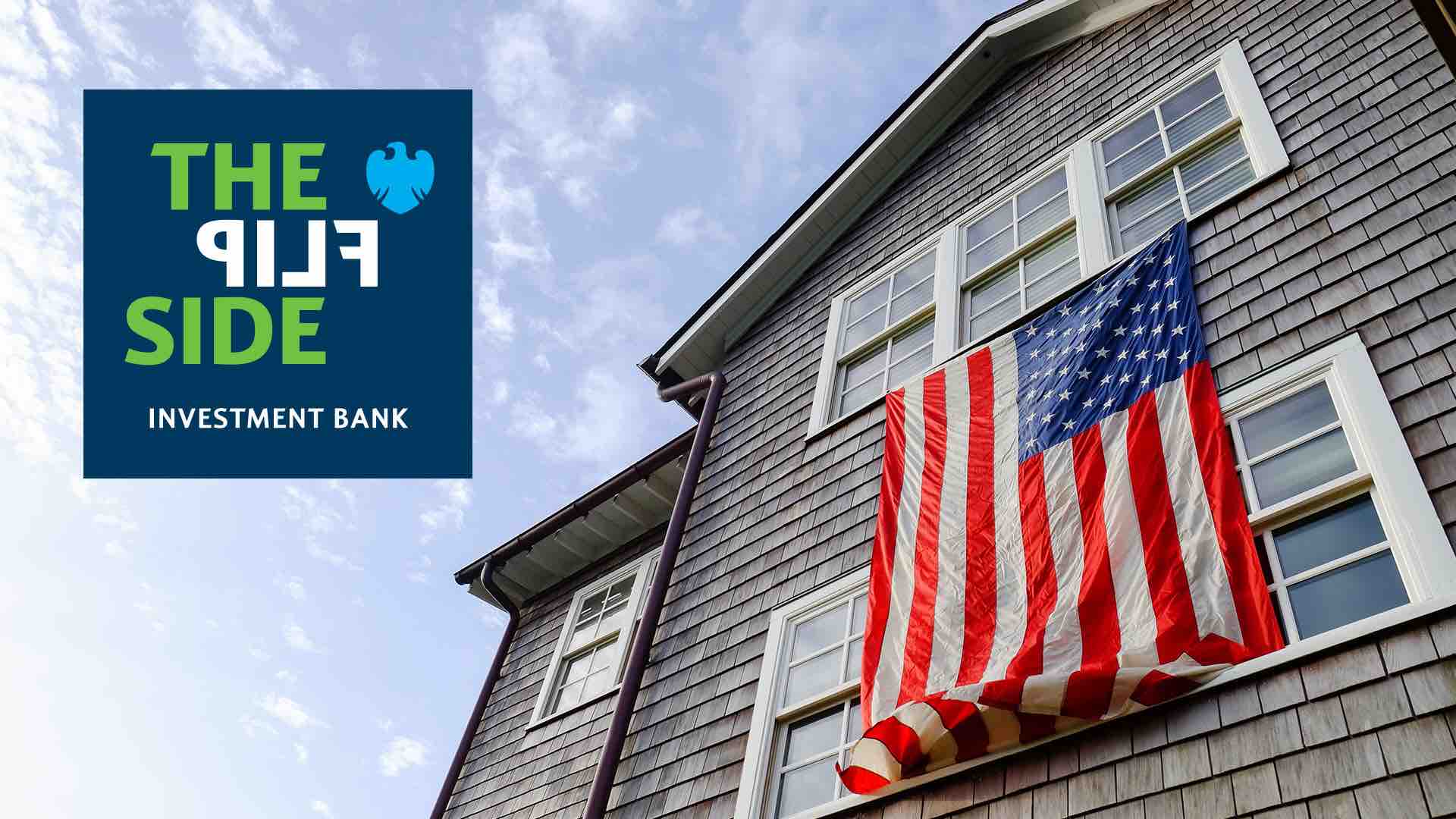| | | | | | | Presented By Barclays Investment Bank | | | | Axios Markets | | By Dion Rabouin ·Oct 22, 2020 | | Good morning! Was this email forwarded to you? Sign up here. (Today's Smart Brevity count: 1,245 words, 4.7 minutes.) 💥 Join Axios tomorrow at 3:30pm ET for a virtual event on the upcoming election featuring former national security adviser H.R. McMaster, Voto Latino CEO and president María Teresa Kumar, and Rep. Karen Bass (D-Calif.) 🎙 "Instead of always looking at the past, I put myself ahead 20 years and try to look at what I need to do now in order to get there then." - See who said it and why it matters at the bottom. | | | | | | 1 big thing: Gentlemen (and ladies) on Wall Street still prefer bonds |  | | | Illustration: Aïda Amer/Axios. Photo: Sunset Boulevard/Getty Contributor | | | | Investors' return on U.S. corporate bonds has been falling since its August peak, but buying has only accelerated, especially in investment grade bonds that are offering historically low yields. What's happening: Since hitting its 2020 high on Aug. 4, the benchmark Bloomberg Barclays U.S. bond aggregate has delivered a -2.2% return. (For comparison, the S&P 500 has gained 3.9% during the same time period.) - However, investors have gobbled up bond mutual funds and ETFs. In September alone bond funds saw $50 billion of inflows, and drew $45 billion of inflows in the first two weeks of October, according to data from the Investment Company Institute.
What we're hearing: "Since the COVID-19-related meltdown, corporate investment-grade debt funds have attracted net new money each week since the fund-flows week ended April 15, 2020," Tom Roseen, head of research services at Refinitiv Lipper, tells Axios. - "They do appear to be on track to replicate, if not beat, the net inflows from 2019."
- "2020 looks like it will be another banner year for the group."
- Refinitiv's data show investment grade bond funds and ETFs have drawn $168 billion of inflows this year.
Why it happened: Bonds have been highly sought after for years as older populations near retirement and the stock market had continued to rise, outpacing fundamentals and creating a historically long bull market that had investors expecting a crash. - Then central banks slashed interest rates around the globe in response to the coronavirus pandemic, pushing investors out of government debt and into corporate bonds to generate yield.
What's next: Companies are poised to deliver significantly less debt in 2021, says Hans Mikkelsen, credit strategist at Bank of America Securities. - He's expecting investment grade companies to issue between $800 billion and $1 trillion, the midpoint of which would be the lowest since 2011.
- He expects net issuance in 2021 to be around $326 billion, the second lowest since at least 2002, as fewer companies will need cash after 2020's record debt binge.
"We've never seen anything like this before, where companies have done so much refinancing in one year and also built this cushion of $360 billion in cash," Mikkelsen tells Axios. - That will create an unprecedented "artificial shortage," he adds. "It's a bullish environment for spreads."
Yes, but: Bond issuance was expected to slow dramatically in Q3 as companies moved further away from the March selloff, but instead IG companies issued more than $267 billion of bonds, and high-yield companies sold more than $119 billion, per Dealogic. - Both were the largest amounts for a third quarter on record dating back to 1995.
|     | | | | | | Bonus chart: Rethinking debt |  Data: Investment Company Institute; Chart: Axios Visuals More than 35% of the world's government debt and 25% of all global debt now has a negative yield and we're edging closer to the record highs seen in August 2019, Deutsche Bank multi-asset research strategist Jim Reid notes. - That includes around $1.1 trillion of negative-yielding corporate bonds.
Why it matters: The incredibly low level of yields and central banks' pledges to continue quantitative easing and low-interest-rate policies for years means there will be consistent appetite for corporate bonds. That means it's sensible for companies to consistently hold higher levels of debt, BofA's Mikkelsen says. - "If you open up your old corporate finance textbooks it makes sense that companies have more debt in their capital structures when it's cheaper."
- "It may be that 30 years ago that the optimal rating for an investment grade company was A, but now maybe it's BBB."
- "We wouldn't want it to be another way because then GDP would be lower."
|     | | | | | | Double bonus chart: Treasuries hit 4-month high |  Data: Investing.com; Chart: Axios Visuals The value of bonds is falling because yields keep rising on higher inflation expectations. What happened: U.S. Treasury yields rose to their highest level in four months on Wednesday as investors continue to price in a blue wave Democratic sweep that is expected to drive trillions of dollars more in fiscal spending from Washington over the next few years. - Benchmark 10-year note yields rose to 0.84%, the highest since June 9, and the yield curve between 2-year and 10-year notes steepened to 68 basis points, the widest since June 8.
- Yields on the 10-year note have jumped 15 basis points since Oct. 1.
What it means: Increased government spending is expected to raise inflation, which boosts the yield and reduces the value of already-held bonds. Of note: Both Morgan Stanley and Goldman Sachs have said in recent notes to clients that a blue wave could push the Fed to raise interest rates sooner than expected — but "sooner" means in 2023 or 2024, rather than 2024 or 2025. |     | | | | | | A message from Barclays Investment Bank | | New episode: The Flip Side podcast on U.S. housing reform | | |  | | | | Barclays Head of Research Jeff Meli and MIT Finance Professor Deborah Lucas debate what role, if any, Fannie Mae and Freddie Mac should play in the future of the U.S. housing finance market. Hear what they had to say in the latest podcast episode. | | | | | | 2. Catch up quick | | Operation Warp Speed head Moncef Slaoui said he expects AstraZeneca and Johnson & Johnson's phase three coronavirus vaccine trials to restart in the U.S. as soon as this week. (Bloomberg) The Fed's October survey of business contacts showed economic activity continued to increase across all districts at a slight to modest pace. (Beige Book) OxyContin maker Purdue Pharma has agreed to plead guilty to three federal criminal charges and close the company as part of an $8.3 billion settlement. (Axios) |     | | | | | | 3. PayPal brings bitcoin to the mainstream |  Data: Investing.com; Chart: Axios Visuals PayPal's decision to allow customers to hold bitcoin and other virtual currencies in its online wallet and shop using cryptocurrencies sent the value of bitcoin soaring on Wednesday. Why it matters: With 346 million active accounts around the world and 26 million merchants, PayPal could bring cryptocurrencies into mainstream acceptance. The big picture: The company hopes the service will prepare its network for new digital currencies that central banks and companies may develop, PayPal president and CEO Dan Schulman told my former colleague Anna Irrera at Reuters. - "We are working with central banks and thinking of all forms of digital currencies and how PayPal can play a role," he said.
Flashback: Square invested $50 million into a block of nearly 5,000 bitcoins earlier this month, with CEO Jack Dorsey saying he believes one day bitcoin will become the world's "single currency." - The integration of cryptocurrencies into Square's Cash App has been a particular point of emphasis.
Go deeper: I talked to ARK Invest's Max Friedrich about why Cash App is the key to Square's future and its booming stock price on the latest episode of the Voices of Wall Street podcast. |     | | | | | | 4. Snap's impressive earnings lift social media stocks | | Snap's blowout third quarter earnings report on Tuesday helped lift the share price of social media companies like Facebook, Twitter and Pinterest on Wednesday to massive gains, as investors reconsidered the landscape for advertising on their platforms. What they're saying: "Our field checks, along with Snap's 3Q results, suggest that advertiser demand strengthened over the course of the quarter, particularly for smaller platforms like Pinterest, Twitter, and Snap," Goldman Sachs said in a note Wednesday. By the numbers: Snap gained 28.3% and rose to a record high of $36.50; Pinterest rose 9% to a record high of $49.38; Twitter closed up 8.4% to $50.24, touching a five-year high; and Facebook gained 4.2%, closing at $278.73. |     | | | | | | 5. Tesla continues longest profitability streak in company history |  Data: FactSet; Chart: Axios Visuals Axios' Courtenay Brown writes: Tesla reported its fifth consecutive quarter of profitability — raking in $331 million of net income, the most since the run began — alongside a record number of deliveries of its electric cars. Details: Tesla said it had the "capacity" to produce and deliver 500,000 cars by the end of the year, per a release, but achieving the closely watched goal it set before the pandemic hit "has become more difficult." - The company said meeting its objective hinges in part on ramping up production of the Model Y SUV, as well as production at its factory in Shanghai.
- Tesla has delivered 318,350 vehicles so far this year.
Between the lines: Questions remain about whether Tesla will gain inclusion in the S&P 500 index, opening it up to the roughly $11 trillion worth of investment funds that track the index, per Bloomberg. - The company met the final requirement for eligibility — four consecutive quarters of profitability — last quarter. But in a surprising move, Tesla was passed over when the index's committee switched up components in September.
- Tesla's stock price has run up an eye-popping 409% this year. The stock rose as much as 4% after the company reported earnings.
|     | | | | | | A message from Barclays Investment Bank | | Addressing a growing homeownership divide | | |  | | | | Barclays Research found rising income inequality in the U.S. is strongly associated with lower homeownership rates, especially in states with higher Black populations. What role should the government play in the mortgage market? Explore the report. | | | | Thanks for reading! Quote: "Instead of always looking at the past, I put myself ahead 20 years and try to look at what I need to do now in order to get there then." Why it matters: On Oct. 22, 1966, The Supremes became the first "girl group" with a No. 1 album in the U.S. when "The Supremes A' Go-Go" bumped The Beatles' "Revolver" from the top spot. - The quote comes from Supremes' frontwoman Diana Ross.
| | | | Axios thanks our partners for supporting our newsletters.
Sponsorship has no influence on editorial content. Axios, 3100 Clarendon Blvd, Suite 1300, Arlington VA 22201 | | | You received this email because you signed up for newsletters from Axios.
Change your preferences or unsubscribe here. | | | Was this email forwarded to you?
Sign up now to get Axios in your inbox. | | | | Follow Axios on social media:    | | | | | |









No comments:
Post a Comment